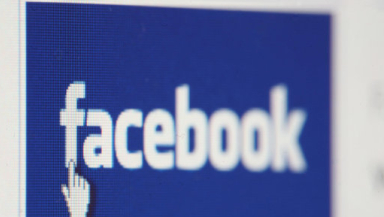
The rise of social media has long been seen as symptomatic of a self-obsessed and narcissistic generation, but a new study now suggests that it can even be linked to body dysmorphia.
Facebook timelines and Twitter newsfeeds are filled with photo after photo of individuals and their selfies, often though certainly not exclusively girls, masked by various flattering filters and accompanied by a whimsical hashtag.
Posting images of ourselves online is nothing new, but it does seem to have rocketed in the past few years. Last year, the Oxford Dictionary named 'selfie' as its word of the year - an award given to a word or expression that has attracted a significant amount of interest in the past twelve months. According to language research, the use of 'selfie' increased by a colossal 17,000% between 2012 and 2013, which marks a huge upward trend.
It's mostly seen as just a bit of fun, but new research indicates that spending a significant amount of time online and being exposed to other people's selfies could have a devastating effect on an individual's psyche.
Researchers at the Universities of Strathclyde, Iowa and Ohio undertook a study of 881 female college students in the US which considered their use of Facebook, eating habits, exercise regime, current and 'ideal' weights and their general body image.
The study, which will be presented at the Annual Conference of the International Communication Association in Seattle in May, is the first to draw a connection between time spent on Facebook and negative body image.
The results show that individuals who spent more time on social media were more likely to compare themselves physically to their friends, which in turn was shown to generate negative attitudes towards their own appearance.
"While time spent on Facebook had no relation to eating disorders, it did predict worse body image among participants," says Dr Petya Eckler of the University of Strathclyde.
"The attention to physical attributes may be even more dangerous on social media than on traditional media because participants in social media are people we know.
"These comparisons are much more relevant and hit closer to home. Yet they may be just as unrealistic as the images we see on traditional media," she added.
Last month, the Daily Mail reported on a British teenager who became so obsessed with taking the perfect self portrait that he eventually tried to commit suicide. He was then treated for technology addiction, OCD and body dysmorphia, and is thought to be the UK's first selfie addict.
A spokesperson for eating disorder charity Beat told the BBC: "Young people compare themselves to the images that bombard them and feel it is their fault that their bodies compare so unfavourably."













